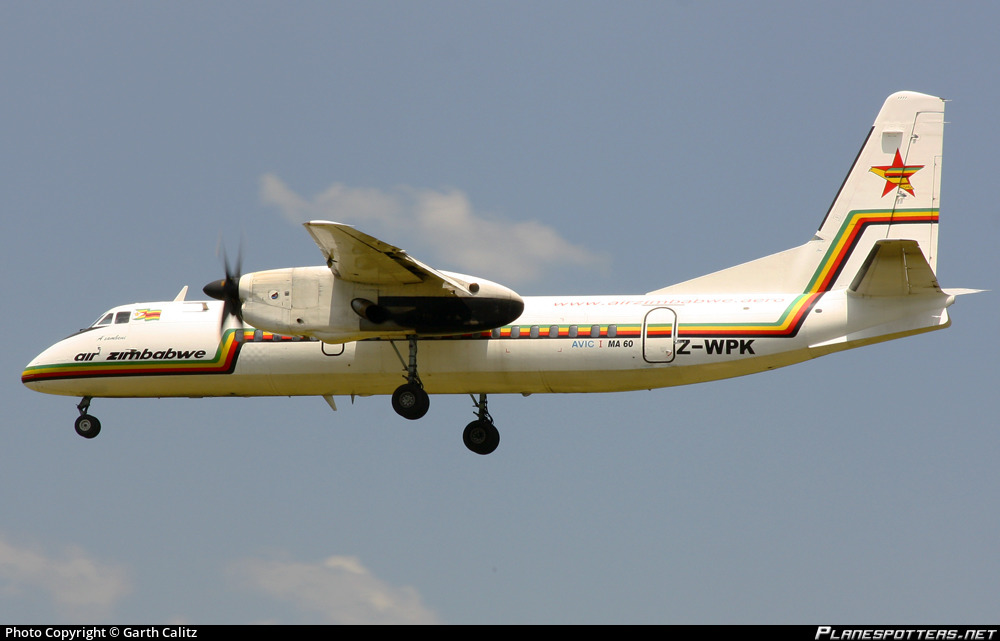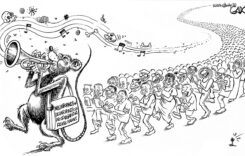CLAIM: Auditor General says three Air Zimbabwe planes have gone missing
VERDICT: False
By ZimFact Staff
Basis of claim:
Last week, Zimbabwe Auditor General Mildred Chiri released audit reports of the central government’s finances, local authorities as well as state enterprises and parastatals for 2018. Because some entities, especially parastatals, still lag behind in producing their financial statements, not all of the audited financials are for 2018, even though they were conducted last year.
In the case of Air Zimbabwe, the financial reports carried in the Auditor General’s 2018 reports are for the period between 2011 and 2014.
On Air Zimabwe’s aircraft, the Auditor General said:
“The company was using and deriving economic benefits from three MA60 aircraft, which were not accounted for in the company’s financial statements. There was neither a lease agreement nor agreement of sale for the assets hence I could not determine the correct accounting treatment for same.”
The Daily News on Sunday [Paywalled] reported that “Loss-making Air Zimbabwe has failed to account for at least three MA60 aircraft, which have vanished into thin air, with Auditor General Mildred Chiri unable to establish the fate of the turboprop-powered airliners.”
Picking the Daily News report, website ZW News reported ‘Three Planes ‘Stolen’ at Air Zimbabwe’
Bulawayo24 flew in with ‘Three planes disappear at Air Zimbabwe’, also picked from the Daily News report.
Another online news outlet, Zimetro, went with the dramatic headline: ‘Drama as three planes went amiss at Air Zimbabwe’.
Twitter flies into a rage
Senior MDC Alliance official, David Coltart, was one of many outraged Zimbabweans who reacted to the article on Twitter.
Another opposition politician, Jacob Ngarivhume weighed in:
As did prominent media professionals:
So, what exactly did the Auditor General say?
The Auditor General issued a ‘disclaimer of opinion’ for each of Air Zimbabwe’s annual accounts from 2011 to 2014. This means she and her department did not have sufficient material information on which to base an audit opinion.
Put simply, she refrained from giving an audit opinion on Air Zimbabwe’s accounts because of inadequate information resulting from, among many reasons, the breakdown of internal controls.
A disclaimer of opinion is just one of four types of audit opinions. The others include unqualified opinions, in which an entity’s accounts are deemed to be clean.
A qualified opinion is passed when an auditor find information provided by the entity to be limited, while an adverse opinion is passed when auditors consider the financial information to be inaccurate and misrepresented as to give a misleading picture of the entity’s financial health.
The Auditor General’s decision to issue a disclaimer of opinion on Air Zimbabwe’s accounts was based on 12 grounds, including the failure to account for the three MA60 planes as well as improper valuation of property, aircraft and equipment.
“Included in property, aircraft and equipment is aircraft with a carrying amount of US$4,398,630. The valuation of the aircraft was based on insurance values which are equivalent to the replacement cost of the aircraft. International Accounting Standard (IAS) 16, requires an item of property, aircraft and equipment to be valued at market value or depreciated replacement cost,” reads part of the audit report.
The other reasons the Auditor General cited for the disclaimer are the lack of proper inventory records, inadequate receivable and payable records, unsupported expenditure and an incomplete asset register.
The Auditor General could not even find proof that Air Zimbabwe owned the building housing its head office.
Nor were there any documents confirming a US$3.5 million bank overdraft or bank balances amounting to US$725,629.
“Included in the Statement of Financial Position under current liabilities is an unexplained suspense balance amounting to US$27,965,576. There were no alternative procedures which I could perform to validate this balance,” the Auditor General stated.
She concluded that Air Zimbabwe did not comply with the relevant accounting standards in the preparation of its financial statements.
“How on earth can three planes disappear without a trace?”
Contacted for comment, Air Zimbabwe spokesperson Tafadzwa Mazonde denied the planes in question, three MA60s acquired from China in 2005, had disappeared.
“It’s just poor reporting and misleading headlines,” he told ZimFact.
“For state enterprises, government comes in from time to time to offer shareholder support. In this case, the assets were bought in the name of the Government of Zimbabwe, not Air Zimbabwe. So when the auditors came, they queried this, they wanted the paperwork, which is with the government. Remember Air Zimbabwe is a separate entity from government and, from accounting best practice, the auditors want to know the link.
There should at least be a lease agreement showing the arrangement, which isn’t there. The planes are there, you can come and see for yourself.”
Conclusion
The claim that the Auditor General’s report revealed that three of Air Zimbabwe’s planes had ‘vanished’ is false. What the Auditor General actually said was that, as with many other aspects of Air Zimbabwe’s accounts, she could not find documentary evidence of the purchase or leasing of the three planes, which the airline was “using and deriving economic benefits from”.
Do you want to use our content? Click Here












